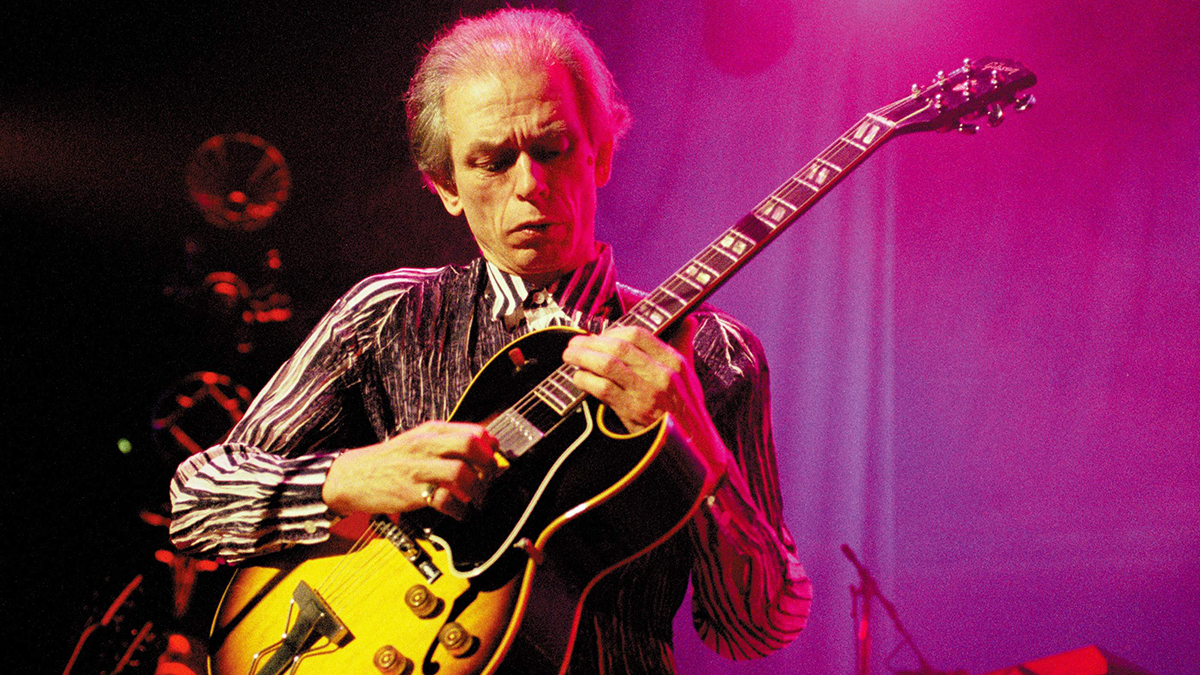Guitar Acquisition Syndrome: what it is, how you already have it, and why that’s no bad thing
We speak to music scholar, musicologist and author of a new book on the phenomenon Dr. Jan Herbst about all things G.A.S., and uncover why gear mania is an essential part of our development as guitarists
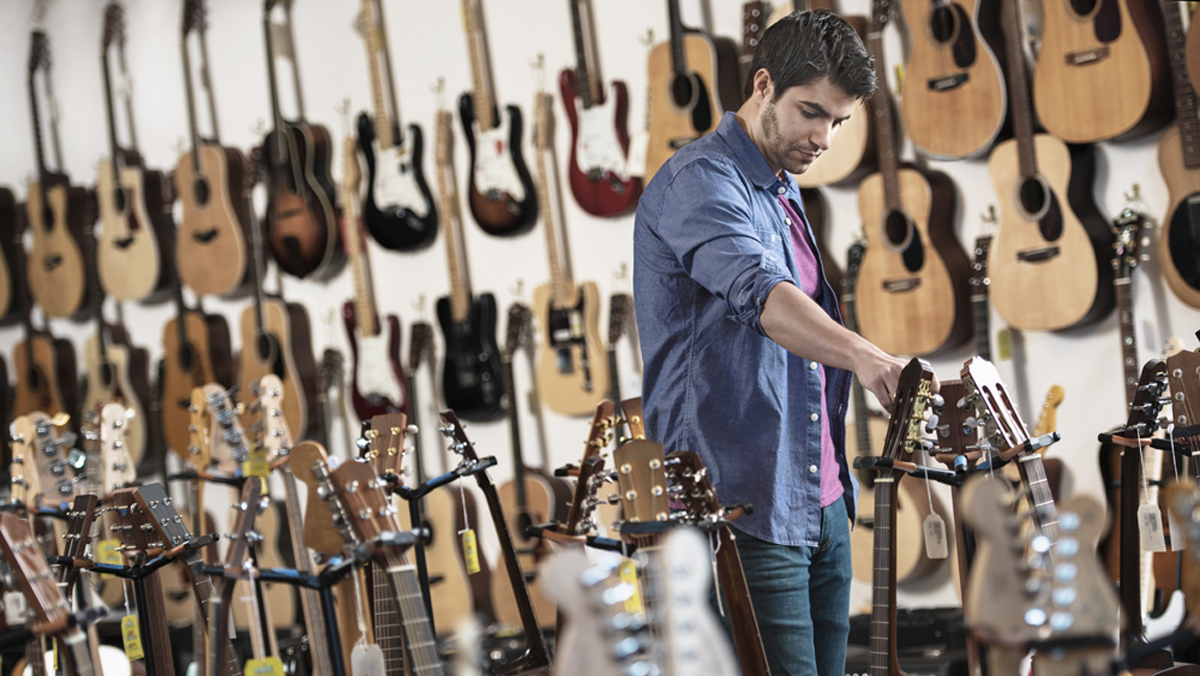
If you are reading this, the chances are you may be suffering from Gear Acquisition Syndrome, a psychological condition commonly referred to as G.A.S. Symptoms vary, but there are some tell-tale signs. We can diagnose you right now, and no, you don’t need to send in a stool sample. In fact, please don’t – we’re all out of lab space.
But seriously, a quick look at the tabs on your browser, or dip into your bookmarks and search history – Sweetwater, Reverb.com, eBay, Craigslist, Guitar Center, Sam Ash, etc. – will present all the signs that you have G.A.S.
Indeed, this being the age of surveillance capitalism, the algorithms will have got there first with the G.A.S. diagnosis, with YouTube presenting you with a playlist of pedal demos by Andy Martin, Pete Thorn, and the likes. Targeted ads on every site display links to those overdrive pedals you’ve been jonesing after. Yes, the algorithms saw you coming; they can smell G.A.S. a mile off. We’re no different.
All guitarists have these pathologies, where instead of counting sheep we're running through a top five list of desert island fuzz boxes, or our top five favorite episodes of the JHS Pedals Show, getting lost in our own imaginary Nerdvilles. And let’s not even go there with guitar amps, the Gordian knot of procurement anxiety. That way madness lies.
This all might seem like a bit of fun – and it is – but G.A.S. is a real, observable phenomenon, and here to offer us an academic perspective is Dr. Jan Herbst, a senior lecturer at University of Huddersfield and Director of its Centre for Music, Culture and Identity (CMCI). Dr. Herbst has researched this phenomena and authored a book on the subject.
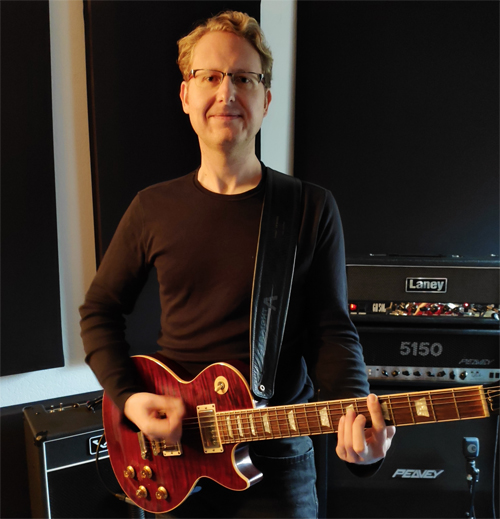
Written with Jonas Menze, Gear Acquisition Syndrome: Consumption of Instruments and Technology in Popular Music examines the relationships that musicians have with their instruments and the markets that serve them. It not only will deepen your appreciation of some of the mechanisms and drivers of G.A.S., but it examines the phenomenon in other musicians. Who knew that guitarists weren't the worst?
Of course, Dr. Herbst plays the guitar, and he, too, is suffering from G.A.S. Right now, plugins are keeping him at the e-commerce table, and he’s got no intention of calling it a night any time soon. “You can just go online, click and buy them,” he reasons. “It is very easy and they’re not so expensive.”
All the latest guitar news, interviews, lessons, reviews, deals and more, direct to your inbox!
Wait, how many times have we told ourselves just that? As it turns out, though, G.A.S. serves a purpose, and while it might seem counterproductive to spend your Saturday afternoon agonizing over the rectitude of germanium diodes and op-amps, this, says Dr. Herbst, can help us develop as musicians. Indeed, in some respects, G.A.S. is all part of the journey.
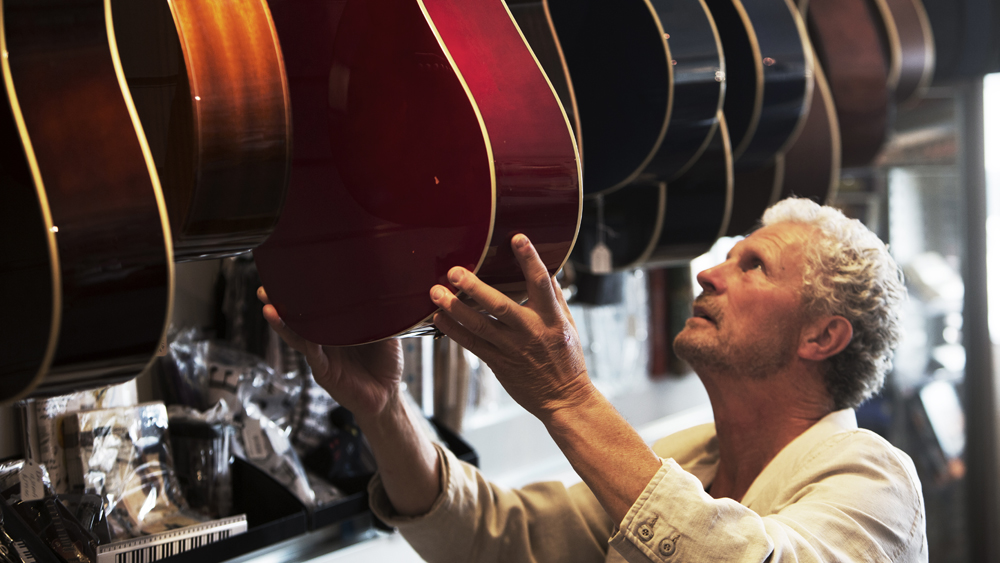
There seems to be this tension between Gear Acquisition Syndrome being essentially a consumerist phenomenon and a practical activity, necessary to our craft as guitar players.
“The idea of G.A.S. quite explicitly applies to gear that you don’t really need. If you look up the definition, it’s about buying gear and buying stuff that you don’t need, but I don’t think this is necessarily true.
“In the main conclusions of our book, we looked at it from various perspectives – especially from a musical development and learning perspective. Developing and progressing as a player is usually accompanied by updates and upgrades in gear. As you progress, you find out what instruments are out there, what gear is out there and what other people have played.”
Naturally, and those influences inform those gear choices…
“There is a whole cultural system in music where you look into what other players have played in the past, how they developed, where the technology is now and where it might be headed to, then you make up your own mind.
As you progress as a player, you discover new genres and you acquire new styles, which also require some kind of gear
“This is really a development process where you learn more about technology but also about yourself, about music, and as you progress as a player, you discover new genres and you acquire new styles, which also require some kind of gear. Although I am sure there will be different opinions about whether you need different gear for different genres and styles, I would argue you do. Most certainly.”
And the level to which G.A.S. affects us changes as we develop as players. Which makes sense – beginners don’t need a Mesa/Boogie and a 12-pedal ‘board.
“As you become more flexible and more versatile, then your gear collection needs to reflect this. You could find one setup that is able to cover everything, but this is a huge quest, and usually it takes a lot of time to explore instruments, trade them and upgrade them.
“It takes a lot of investment before you get to this one setup that covers everything. You need more specialist setups for different bands, different genres, different styles. This is all musically justified. There are lots of musical justifications for buying more gear, and most of them are actually valid.”
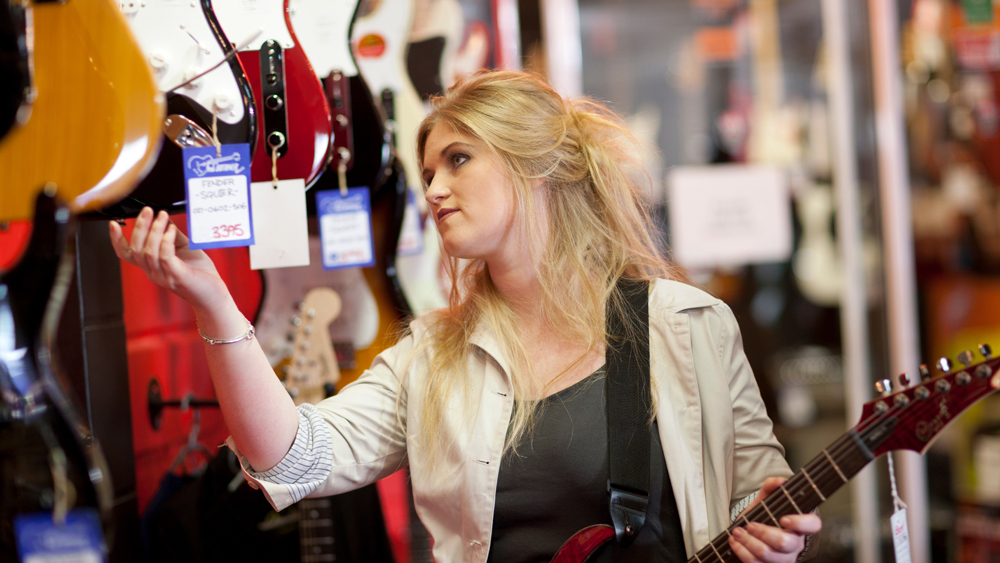
Buying gear can be a marker of a player’s identity. Is this simply a reflection of what we see in wider society, where we have this paradigm of the prosumer and this growing expertise in the acquisition of consumer goods that help people express their identities?
“Yeah, there is a theory we draw quite heavily on. It’s called the 'extended self', which basically says we as humans define ourselves by our possessions. It’s linked with our hopes and where we want to be. It’s like a prospective outlook in the future, and it is setting us targets. ‘This is what we want to be. This is what we are working towards.’ And it is always about this development idea that I referred to earlier.
“But it also looks back. It has a nostalgic element. There are lots of musicians who don’t sell their gear even though they are not playing it anymore. It marks part of their musical development. Maybe they associate a gig or a previous role model with it, so they find it very difficult to part with the instrument, and, of course, this leads to the collection getting bigger and bigger.”
Right, and musicians are quite sentimental beasts. A crusty old Breville sandwich press goes straight to the charity store. The guitars hang around. What role does advertising play? Typically, it creates a dissatisfaction where none exists, yet here, the dissatisfaction is already there – you are not the best player you could be.
Buying a new guitar might not make you a better player, but it might inspire you to write new songs, to learn another style, or to just keep practicing
“If you have a new guitar, you might play faster, you will be more expressive, and this is inscribed in guitar culture. To some extent that might be the case. Buying a new guitar might not make you a better player, but it might inspire you to write new songs, to learn another style, or to just keep practicing, so there is a motivation element to it.”
There are technologies today that never existed when some guitarists started playing, and yet there hasn’t been an mp3/iPhone moment of total disruption. Could you see that paradigm shift coming, where, say, a next-gen Neural DSP or Helix replaces everything?
“Yes, I think so. I have done lots of research on newer technologies and my research always confirmed exactly what you were saying. There is a lot of resistance and hesitation, more so in the amateur and semi-professional side. Professionals are always fine with [new technology] because it is just so practical; it’s just so handy! And for guitarists and producers in more extreme genres – especially heavy metal music – there is a greater openness to new technologies than, say, classic rock, hard rock, and also funk, blues.
“There is still a lot of reservation, but I think there is a generational shift. I have written a second book. It’s not out yet but it is about rock guitar virtuosity and looking at lots of current players who are mainly YouTube phenomena. You see the newer players, they all play plugins on their computers. Nobody bothers with authenticity anymore. There is a real shift in ideology.”
Do you think that serious amateurs are holding back the technological shift, holding on to this sense of authenticity as part of their social identity?
“I think so. It just feels great to twist knobs and fiddle around, and to see the valves glowing. [Laughs] Probably, the appreciation of past role models is much bigger with amateurs. You still think of Jimi Hendrix or whoever your hero is. Of course, professionals also have their role models, but they develop their own identity and they overcome this. They are much less sentimental about this.”

Technology has led to the democratizing of a great wealth of tones. You can have in one modeling head what Dave Cobb might have in his studio.
“I have certainly seen this with producers – the older ones don’t really use these new technologies because it is part of their business model. They have this huge arsenal of equipment that they put on their website and say, ‘I am best equipped with everything.’
“Newer producers would use more modern technologies, because they don’t have this. It comes down to capital and business strategy. I think, on a broader level, it is always good if music can be democratized.”
Sure, for the professionals, it is a strong brand marker. It demonstrates your sensibility as a producer, rather than sharing all the presets and sounds you have stored on your modeler.
What amplifiers and guitars you own tell us something about your taste. If somebody is a Les Paul fan or a Strat fan, it tells you something about that person
“There is a lot of symbolic value in it. What amplifiers and guitars you own tell us something about your taste. There are a lot of studies behind it. If somebody is a Les Paul fan or a Strat fan, it tells you something about the person, right?”
What effect does social media have on our G.A.S.?
“When I was analyzing message board discussions on this topic, some older musicians would say it hasn’t really changed a lot. In the past, they would just browse catalogs, they would know every page, and they would reread and reread. For some it hasn’t changed at all.
“For others it has. You have so much more access to specialist models from other parts of the world. You can discover new instruments. You can buy them with the click of a button. You have the eBay/Craigslist system, which is very enjoyable for many, to have the thrill of buying, always in the hope of getting a bargain.
“You have what is described as a liminoid state, where you own something but you don’t own it yet, and you could be outbid. And there is another state of anticipation when it is in the mail, then when it is delivered.
“All the excitement of acquiring a new item is very enjoyable for many people, and for some, even more enjoyable than playing it. They might not play it so much and then sell it again on eBay and try to make money on it. Just the process of buying and selling can be a lot of fun.”
What you describe is like the gamification of acquiring gear.
“Yes, and I think what is important is that making music, for most people, is a leisure activity. There are different concepts; one is called serious leisure, where you have a career in your leisure time. But I think this is very important when you think about gear, and how it works with your everyday life.
“People might not have the time to practice every day, or even every week, but they can still do research on gear while they are commuting to work, or when they are sitting on the sofa watching TV with the family.
“It’s more compatible. They are still engaged with it even when they don’t actually have the time to practice. The hobby is not just making music – it’s more the whole social system, and part of your identity as we said before. You can still exercise your hobby even though you don’t have the luxury of playing.”
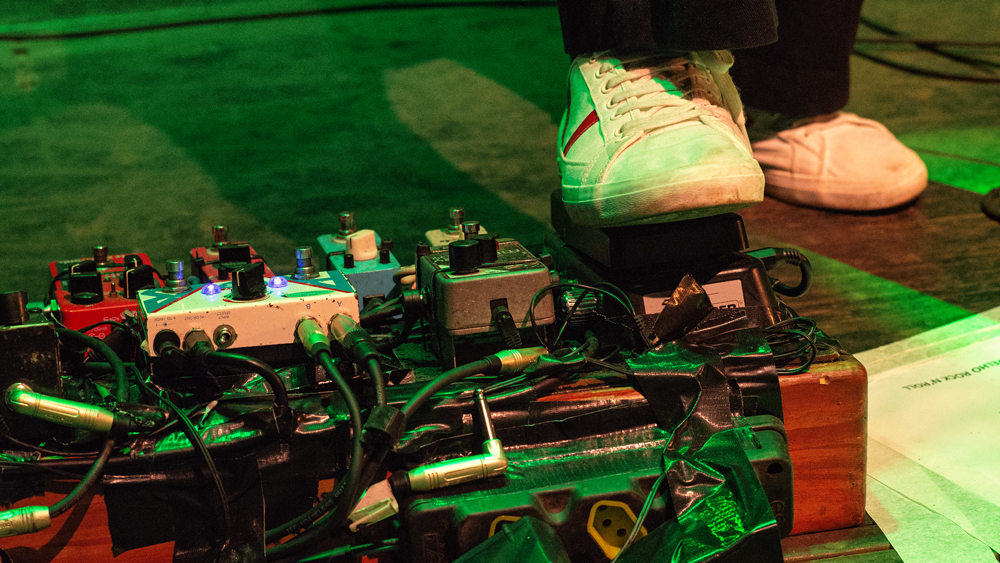
Are pros afflicted by G.A.S.?
“I have to say, we didn’t look at pros too much in our research. I have the feeling it varies a lot. Some pros I have spoken to in other contexts are very much influenced, very much aware of what’s coming out, of what’s available, and others are completely not interested. They might still have G.A.S and be exploring sounds but they might not be as influenced by media.”
Sure, it’s hard to imagine the Edge setting up a news alert every time a new delay pedal comes out.
“Depending on how pro they are, they might have their own techs and say, ‘I need a clean sound, an overdrive sound, a lead sound and maybe some effects.’ And yeah, they’d create a rig with different amplifiers and serious control mechanisms.”
The rise of pedalboard culture seems like the perfect maturation of the G.A.S. idea. Can you talk about some of the impulses that are driving its growth?
In a survey, guitar players had, on average, more than 10 pedals, which probably confirms that gear acquisition has become a major part of guitar culture
“We didn’t look at pedals too much because we were comparing different instruments, but you can certainly see that guitar players – we did a survey – had, on average, more than 10 pedals, which probably confirms what you are saying. It has become a major part of [guitar culture].
“Having 10 pedals is really a lot. In terms of number of items owned – let’s say in terms of instruments and amplifiers – guitarists and bassists were the same, which we were surprised about, because we always thought guitar would be the most G.A.S.-inspiring instrument. But when it came to pedals, the guitarist is much more prone to using pedals.”
Is the phenomenon of G.A.S. consistent across other instruments?
“We compared bass, guitar, drums, keyboards of all sorts, trumpets and saxophones, and of course they are slightly difficult to compare, but in absolute numbers, the trumpet players were the worst by far.”
Trumpet players? Why?
“Yeah, we tried to find out why, and if it was down to different tunings. There are so many different models depending on what you classify as a trumpet. But this is totally not the case with the saxophone. There needs to be a reason why trumpet players feel they need so many instruments.”
Could it be because they are not easily modified as a guitar or bass might be?
“That could be one of the reasons, but then it doesn’t explain why a saxophone player doesn’t need so many instruments. But definitely, the guitar is very much a DIY instrument. Actually, I am sure you have read the editorial by Walter Becker, G.A.S. ’96, where he described Guitar Modification Syndrome as actually the worst kind of G.A.S., worse than G.A.S. itself! [Laughs]
“I mean, there are so many areas you can explore. It might be customization. It might be the pickups. You can also have all these sets where you can build your own amplifier, construction kits for amplifiers, for guitars, for pedals, and I think pedals are a very easy way to get into the electric side and do a bit of soldering.”
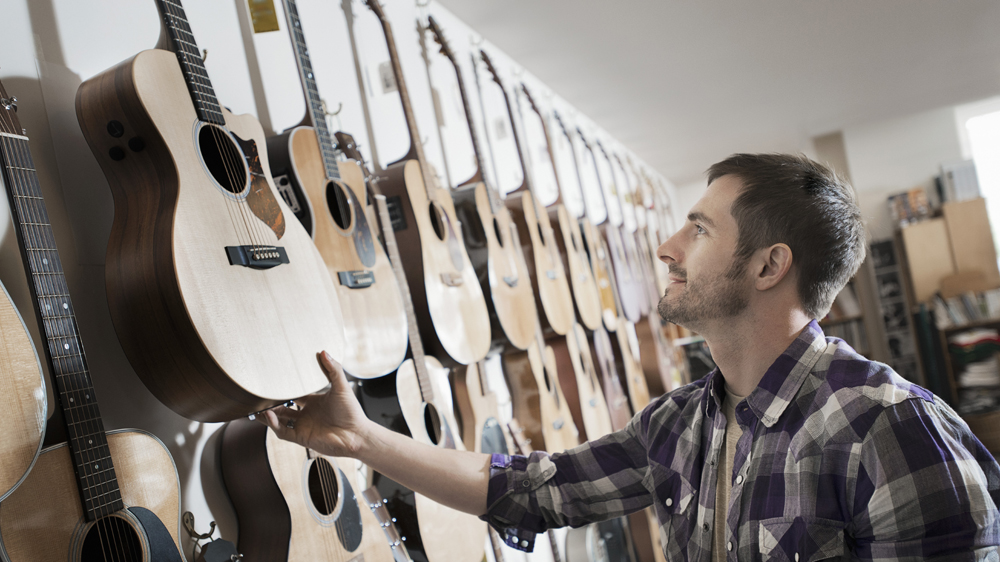
What about the downsides of G.A.S.? We might argue that it pulls focus away from your practice.
“I would say yes and no. I have spent hours, days and months analyzing these different perspectives online, and some said, 'Yes, you should never lose focus on why you started in the first place – you wanted to play music, you wanted to make music. You didn’t want to own gear.'
“But other people said, ‘This is my hobby and I want to have fun, and if I am enjoying researching gear, buying it, and it is as much fun as playing – maybe even more so – and I can work it in with my other obligations, that’s completely valid.'
I think collecting gear has to do with your personal ambitions. If you enjoy what you are doing and it is only a hobby, then I don’t see it as a bad thing
“I think it has to do with your personal ambitions, and if you enjoy what you are doing and it is only a hobby, and it’s not making you bankrupt, then I don’t see it as a bad thing.”
What was the biggest surprise from your research?
“Two things, and they are related. The first was that we thought guitar players would be the worst affected because that is the common notion. We looked at lots of books. If you go on Amazon and type in ‘guitar’, you’ll find 'What Gear the Pros Play’ and everything like that.
“With guitars, it is always about gear. We were really surprised that guitarists are in no way different to other instrumentalists. If you go on forums for saxophone players, for trumpet players, for keyboardists, you have exactly the same discussions, the same G.A.S. tests – ‘How affected are you!?’
“But what I found interesting was when you compared this to other music-related communities, let’s say music producers and audio engineers; it is very competitive about gear. It’s about a hierarchy. If you do not have a specific microphone, or analog compressor, then you are not on the same level.
“Or even if you have them, then the pros kind of diminish your ear and what you do with it. It’s very much a competitive environment and I don’t see this so much in the music domain for musicians and their instruments. It is more or less a supportive endeavor.”

We egg each other on…
“Everybody enjoys it when you buy a new instrument or a new piece of musical equipment and share it with the community. It really is something that is a communal event. New Guitar Day, or something like that, and people are just happy for them, they take inspiration – ‘Maybe I need to play my Strat again. I haven’t played it for a while.’ And it’s very much like a support community where gear is just something positive, in most cases.”
It’s a mild form of group therapy. Besides, New Guitar Days are the best. No matter how many you have, you never forget them. There is so much psychic weight behind these purchases.
“It is a very emotional process, acquiring gear. Sometimes you just walk into the store and impulsively buy something. That happens. But usually, there are a lot of preparations. You save up some money. You research. You compare. You might even need to part with other items, which might be painful. [Laughs] It’s really very emotional.”
- Gear Acquisition Syndrome: Consumption of Instruments and Technology in Popular Music is available to read online at University of Huddersfield Press. For more information on future studies, head over to JanHerbst.net.
Jonathan Horsley has been writing about guitars since 2005, playing them since 1990, and regularly contributes to publications including Guitar World, MusicRadar and Total Guitar. He uses Jazz III nylon picks, 10s during the week, 9s at the weekend, and shamefully still struggles with rhythm figure one of Van Halen’s Panama.

